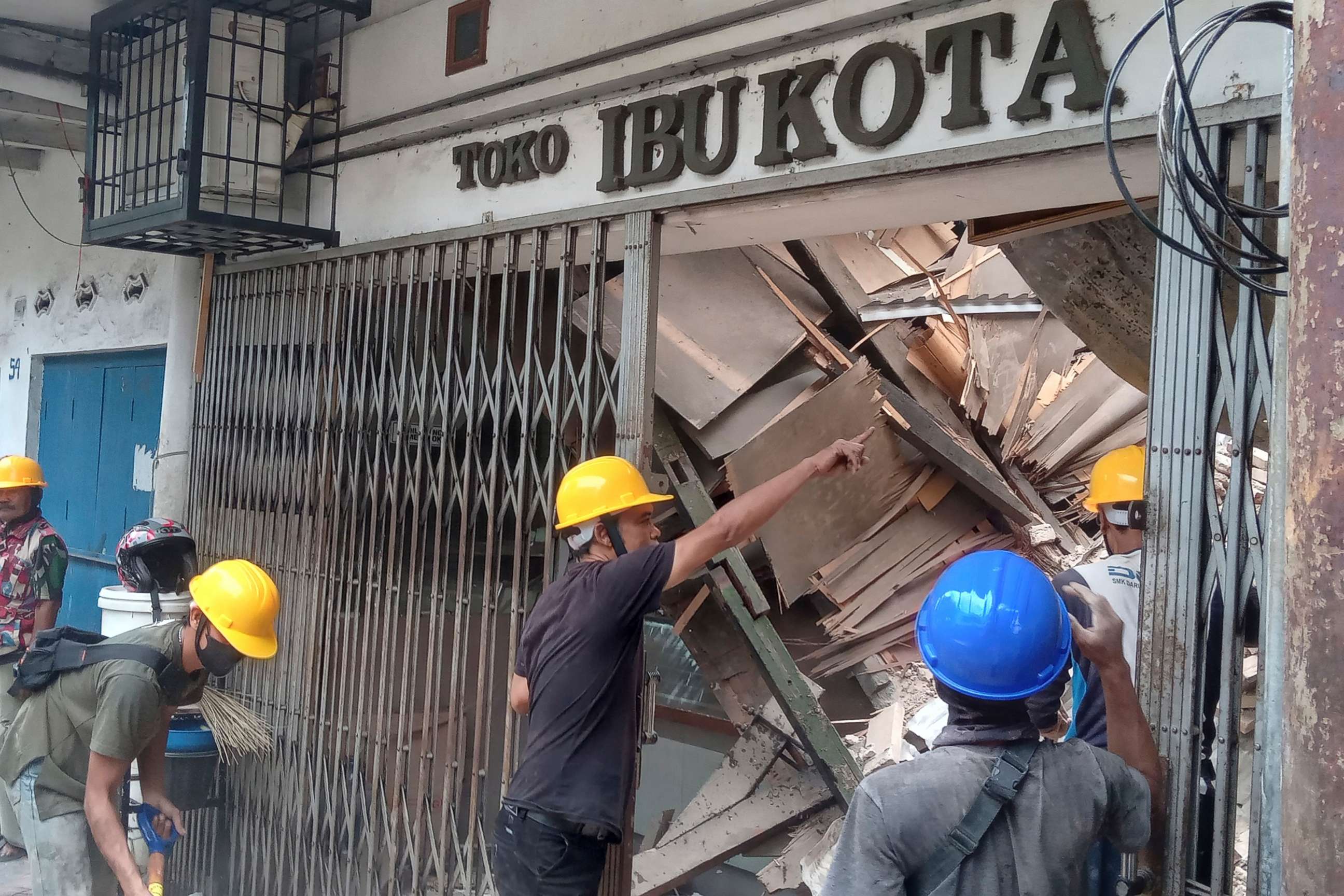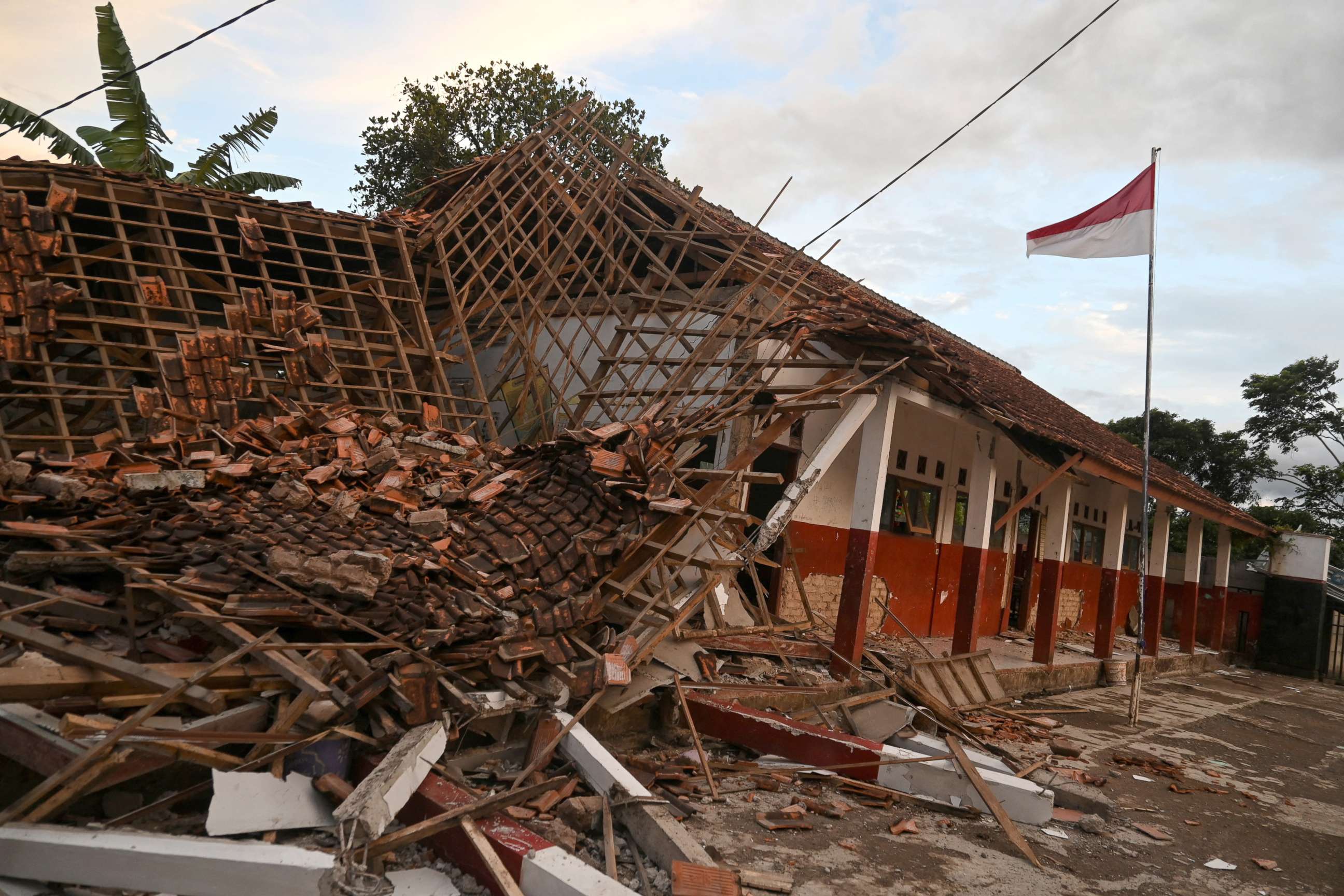Death toll from Indonesia earthquake rises to 271 as search effort intensifies
The death toll continues to rise as rescuers search for the dead and missing.
JAKARTA and LONDON -- At least 271 people have died since a 5.6 magnitude earthquake struck Indonesia’s main island of Java on Monday, while dozens of others remain missing, according to Indonesian authorities.
The death toll has continued to rise in the days since the disaster hit, as thousands of rescuers search for the dead and missing.

Lt. Gen. Suharyanto, head of Indonesia's National Disaster Management Authority (BNPB), confirmed the latest casualty figures during a press conference on Wednesday evening. He told reporters that the 271 fatalities were confirmed by hospitals and community health centers in West Java's Cianjur Regency.
The actual toll could be even higher if families took it upon themselves to bury their dead without alerting authorities.

About 37% of the 271 confirmed deaths were children, according to Suharyanto, who like many Indonesians uses only one name.
"So there are indeed a lot of children," Suharyanto told reporters. "But if looked at it as a whole, there are still a lot [of deaths] outside of children."

Meanwhile, the number of injured has risen to 2,043 and 40 others are still missing or unaccounted for, mostly in Cugenang district in hard-hit Cianjur Regency, according to Suharyanto. He said rescuers found a 6-year-old boy alive in the rubble beside his dead grandmother on Wednesday.
Monday's quake damaged at least 56,320 homes, displacing 61,908 people. Damages were also reported at 31 schools, 124 places of worship and three health facilities, according to Suharyanto.

The 5.6 magnitude earthquake struck at a depth of about 10 km, with an epicenter about 18 km southwest of Ciranjang-hilir, West Java, Indonesia, according to the U.S. Geological Survey. Indonesia's Meteorological, Climatological and Geophysical Agency also measured the quake at a magnitude of 5.6. Preliminary data from the USGS had previously placed the quake at a magnitude of 5.4.
Hundreds of aftershocks have been recorded in the region in the days since the quake hit, according to Dwikorita Karnawati, head of Indonesia's Meteorological, Climatological and Geophysical Agency (BMKG). The number and intensity of the aftershocks have been decreasing and weakening, Karnawati said during the press conference on Wednesday evening.

Indonesian President Joko Widodo visited the devastated communities in Cianjur regency on Tuesday. He vowed to rebuild infrastructure and provide government assistance up to 50 million rupiah ($3,180) to each resident whose home was damaged.
"On behalf of myself, on behalf of the government, I would like to express my deep condolences for the earthquake in Cianjur Regency, West Java Province," Widodo said. "And most importantly, I am happy that the road access that was buried yesterday until this morning has been able to be opened, thank God, and this will be continued with speed in handling -- especially [the] rescue [and] evacuation for those who are still buried."
Indonesia, a Southeast Asian country of more than 270 million people and the world's largest archipelagic state, is frequently struck by earthquakes as well as volcanic eruptions and tsunamis due to its location the "Ring of Fire," a horseshoe-shaped belt of seismic activity around the edges of the Pacific Ocean.



